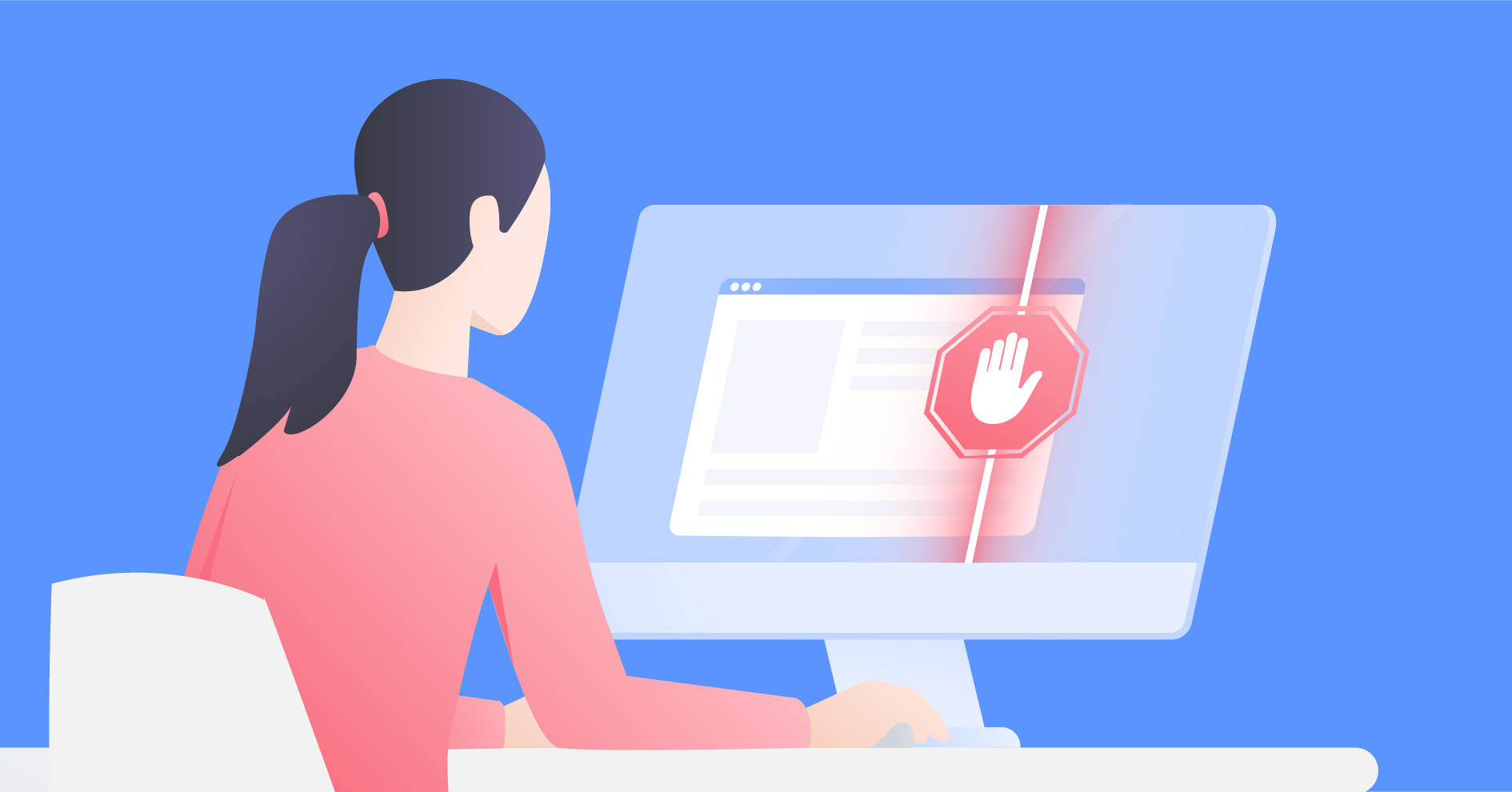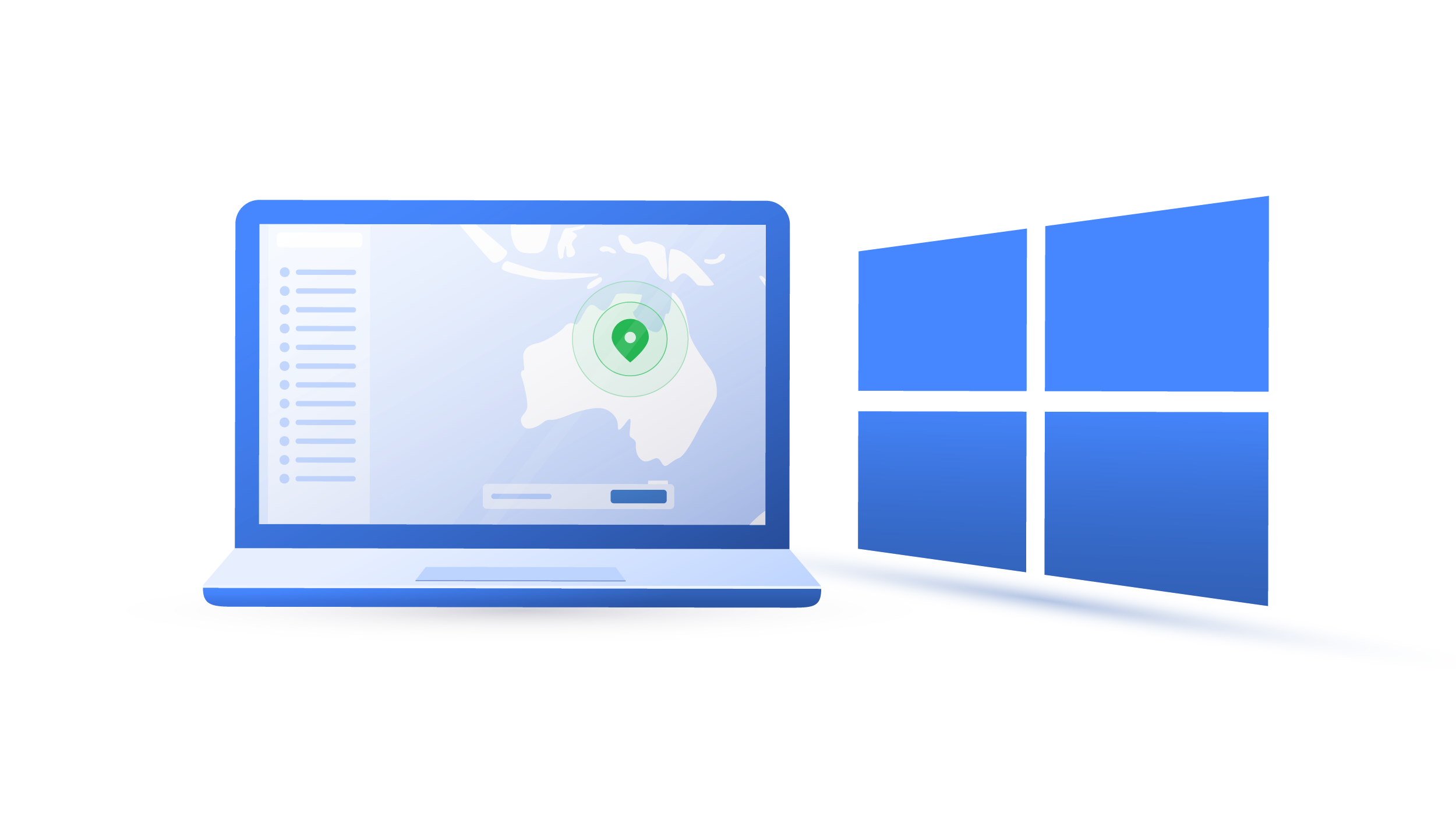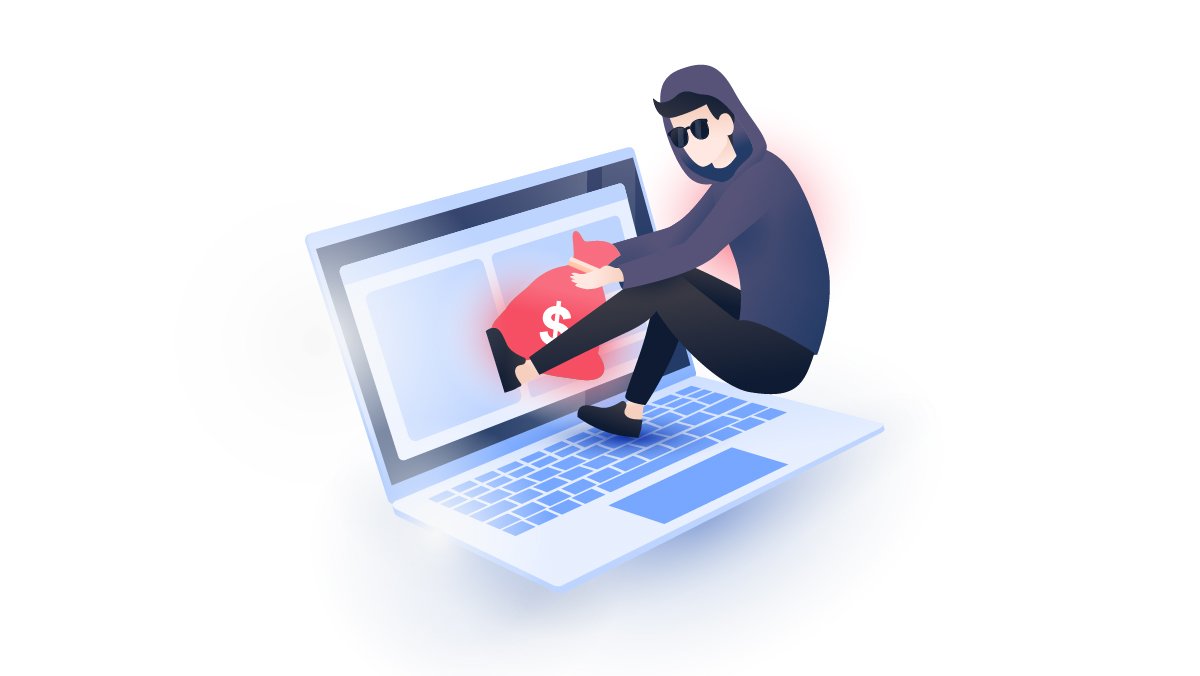What is ad blocking?
Annoying ads usually make your browsing experience way worse. They clutter large parts of websites, slow downloading speeds, and might be sources of malware. So it’s no wonder ad blockers are so popular, people want to block ads where they can. However, there are several factors to take into account when blocking ads.
Paul Black
Dec 09, 2021 · 5 min read

Contents
- What is ad blocking and how does it work?
- Is using an ad block legal?
- Why do people use ad blockers?
- Why you may want to turn your ad blocker off
- Where ad-block software does not work
- How to block ads
- How to block ads on YouTube
- How to block ads on Facebook
- How to block ads on Twitch
- How to choose ad blocking software
- Does a VPN block ads?
What is ad blocking and how does it work?
An ad blocker is any app (usually a browser extension) that removes advertising material, including intrusive ads, from websites. While a site is loading, the ad blocking software checks the domain names of the elements loading on the web page against massive blacklists. If any site component is flagged as advertising material, the ad blocker stops it from loading. An effective ad blocker will block commercials from every media player in your browser.
After the page content is displayed, the ad blocker looks for elements that meet certain rules, e.g., images in common banner dimensions, and hides them from the screen.
Is using an ad block legal?
Yes, it’s perfectly legal to block ads. While websites will specifically curate what they show or advertise to consumers, it’s up to user behaviour to determine how they want to consume that content. It just so happens that the perfect user experience is without ads.
Why do people use ad blockers?
The good thing about blocking advertisements is that it significantly improves your browsing experience by removing intrusive ads, video ads, and tons of content that doesn’t interest you at all. However, there are more benefits of installing ad-blocking software:
- Security. Online advertising can be used by cybercriminals to distribute malware, so if you block online ads, you can actually save your device from being infected;
- Privacy. The software can also prevent some third-party trackers from loading, meaning those advertisers can no longer collect information about your online behavior. You can even use ad blockers to block email tracking;
- Speed. Websites will open faster because they won’t have to load dozens of advertising tags, plug-ins, and third-party analytics. If you block ads, you may notice better performances.
Why you may want to turn your ad blocker off
With an ad blocker turned on, you can finally read your favorite articles, watch Youtube videos, and browse in peace without flashy ads popping up on your screen. However, publishers don’t get paid for ads that don’t reach you. That's why some publishers will unfortunately invest in intrusive ads.
Sometimes, the content you are used to accessing for free is actually paid for by ads – and advertisers only pay for ads that get served. If an ad doesn’t appear on your mobile or desktop screen because you blocked it, the site you love to read simply won’t get paid if you block ads.
Publishers, of course, try their best to find ways around ad blocking. Some of them produce sponsored content, while others offer paid subscriptions or ask you politely to whitelist their website or pause your ad blocker for a while. Some even prevent readers from accessing their content if an ad blocker is turned on. Blocking ads can unfortunately hurt some publishers.
Ads can be intrusive and annoying, but they are also the reason some of your favorite websites and online services exist. Ad blocker statistics show that they are generally worth it, but you can also consider shutting them off while browsing reputable sites you’d like to support. They may be aggravating, but some annoying ads here and there will help your favored publishers.
Where ad-block software does not work
Ad-block software is not fool-proof protection and might not work in the following cases:
- Acceptable ads. These are the ads that are respectful, unobtrusive, clearly labeled as ads, and are approved by the Acceptable Ads Committee. These aren't normally annoying ads and might pass ad-blocker filters;
- As noted above, you could be required to disable to ad-block by websites that get their revenue from ads;
- Some sites (like Facebook, YouTube, or Twitch) use special workarounds to bypass ad-blocks. While ad-blocks constantly counter them by introducing new updates, you might still regularly encounter ads on social media platforms;
- Ad content. Some ads are bound with the content you watch. This might be a video in which the person speaking pushes a product or an article that suggests using certain products. This type of advertising is difficult to avoid without blocking the entirety of the content.
How to block ads
How to block ads on YouTube
YouTube celebrities used to heavily rely on the income that pre-roll advertisements and mid-roll advertisements could provide. After a change in policy, this isn’t the case anymore. Therefore, you shouldn’t feel too guilty even blocking the ads on your favorite influencer’s channel. Blocking ads on YouTube is as easy as installing the latest ad-blocking extension of your choice. Some browsers will even have access to specific YouTube tools, where you can block annoying pre-roll ads with just the click of a button.
How to block ads on Facebook
Blocking ads on Facebook unfortunately isn’t as easy as setting up an ad-block extension. The developers at Facebook configured their website to outmaneuver a lot of ad-blocking technology. Log in to your Facebook and get to the Settings menu. Once there, go to your Account Settings. Find the selection called Ads, click on it and go into Ad Settings. Change both ad options you see to Not Allowed. While this will help block targeted ads and the occasional mid-roll ad while watching a Facebook video, it won’t completely cleanse the site of adverts. Facebook has it's own unique brand of behavioural monitoring that can't be outsmarted by a lot of ad blocking technology.
How to block ads on Twitch
Here are a few ways to block Twitch ads:
- Buy a Turbo Twitch account, which makes Twitch ad-free. However, you would have to pay an additional monthly fee for it;
- Get an ad blocker, but make sure it works properly on Twitch. However, ad-blockers cannot block annoying ads on mobile devices. Also, browser extensions might not always work, especially on video ads, so getting a stand-alone ad-blocker is an option as well;
- Report video-on-demand ads you don’t like. If you report an ad several times, it won’t play.
How to choose ad blocking software
As there is a wide variety of ad-blocking programs and browser extensions available, here are a few aspects to pay attention to when choosing the right one:
- Avoiding ad-blocker scams. Always research the app you are going to use. Fake ad-blocker software does not function properly and might gather your data for third-parties or infect you with malware;
- Various types of ads blocked. Make sure an ad-blocker blocks different ads including video ads, banners, pop-ups, etc.;
- Customization possibilities and functionality. Check if an ad-blocker has enough customization options to easily whitelist specific type of ads to access pages, apply filters, etc.;
- Customer support. This is vital in case you would encounter any problems;
- Some ad-blockers can be too forceful and block the relevant content.
Does a VPN block ads?
A VPN with a built-in ad blocker prevents ads from following you online and keeps your browsing activity private. Premium VPNs like NordVPN work on Windows, macOS, Android, iOS, and more. After connecting to a VPN, you can enable the ad blocker and avoid annoying ads.
NordVPN’s Threat Protection technology efficiently blocks suspicious domains so that no malware or other cyber threats can infect your device. It also effectively blocks annoying ads on mobile. On top of that, it will hide unwanted pop-ups, autoplay video ads, and other advertising material the moment you enter a website. Just make sure you download our VPN for android from our official website as it no longer blocks ads if downloaded from Google Play store due to Google’s policies.


